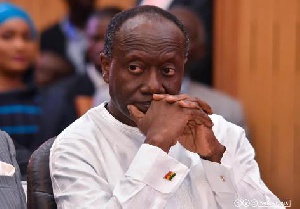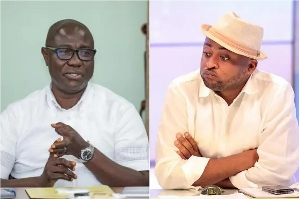The Minister of Finance Ken Ofori-Atta has rejected suggestions that the government’s desire to borrow is causing it to push hard to end the ongoing International Monetary Fund (IMF) 3-year Extended Credit Facility (ECF) programme in April 2018.
Mr. Ofori-Atta earlier this month disclosed to journalists that the government was working hard to implement all the necessary reforms to aid the IMF programme completion.
According to the Finance Minister at a press briefing after a Fund visit led by chief of mission, Analisa Fedelino, the IMF programme signed during the former NDC administration, will end in April 2018.
His announcement came as shock to industry players, many of who had predicted that the government will reconsider an extension of the programme after the initial April 2018 completion date.
Some analysts argue that the government may not be able to meet all the targets set with regard to the programme judging by the time left to complete it; insisting that the government just wants to quickly get out of the programmme, to allow it borrow to finance most of its campaign promises.
But the Minister of Finance Ken Ofori-Atta, who disagreed with the suggestions said, at 70 percent of debt to GDP ratio, the country can’t borrow more anywhere.
“With a 70 percent debt to GDP ratio, we will have to deal with ourselves, which is really the fundamental thing. Whether the IMF programme is in or not in. Key thing is whether the IMF is with us or not, we would have to have done these very things to ensure fiscal discipline and take all the measures that we are taking at the moment. At 70 percent of debt to GDP ratio, you can’t borrow more anywhere.
“So I am not sure if it is the fund which is creating those rigidities. We would have imposed it on ourselves to be able to create a robust macro economy environment. Without that you cannot do much. Essentially, we are working towards maintaining the macro stability and fiscal discipline,” he added.
In 2015, Ghana entered into a three-year agreement for US$918 million to, among others, restore macroeconomic stability.
The IMF deal was to give credibility to Ghana's economic policies and to attract better investment.
As part of the deal, the government was to work assiduously on the macro-economic stability by reducing inflation, fiscal deficit and bring Ghana's debt level to sustainable levels.
Business News of Tuesday, 25 April 2017
Source: B&FTonline













